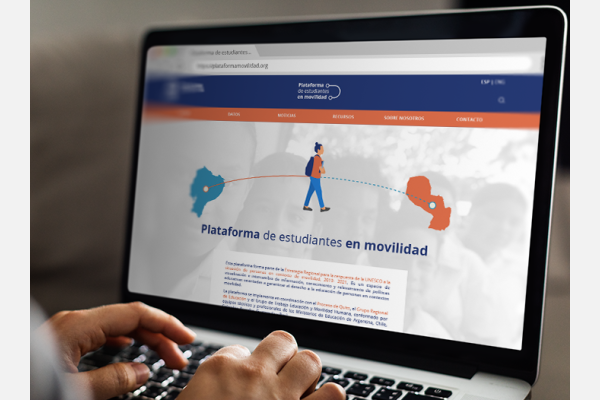Repository of Practices

Regional Monitoring Framework for Students on the Move in the Latin America and the Caribbean region
Dates
Type of practice
Summary
This practice is rooted in the regional commitments that have informed UNESCO’s Regional Strategy for its response to the situation of people on the move. Such commitments include those expressed by Ministries of Education of the region in the Declaration of Buenos Aires (2017), the Cochabamba Agreements (2018), and the VI and VII Joint Declaration of the International Technical Meeting on Human Mobility of Venezuelan Citizens (2020, 2021). Briefly, this practice consists of a monitoring framework for students on the move in Latin America and the Caribbean. It aims to support the formulation and implementation of educational policies aimed at guaranteeing the right to education of people on the move. Currently under development, it will be composed of a quantitative and a qualitative dimension. The quantitative one will make available an updated set of comparable and relevant statistical indicators to understand the regional progress in guaranteeing the right to education for students on the move. The qualitative dimension will contain a normative map of national policies for the educational inclusion of students on the move, an inventory of innovative experiences or promising practices of educational inclusion, and a section on policy implementation analysis. The expanding results of the framework will be disseminated through an open-access website on an ongoing basis. It is worth noting that the project, from methodology to web design, is being developed collaboratively between UNESCO and 22 regional Ministries of Education.
Organizations
Main Implementing Organization(s)
Detailed Information
Partner/Donor Organizations
Benefit and Impact
This system is composed of two dimensions. A quantitative dimension that will make available to the countries an updated set of comparable and relevant indicators that will allow to understand the regional progress in guaranteeing the right to education for students on the move. This dimension considers the indicators used in the national education plans, as well as those agreed internationally in the Framework of Thematic Indicators of SDG 4 and contemplates the strengthening of the capacities to use these indicators for the planning of educational interventions. In its qualitative dimension, the monitoring system will contain a normative map of national policies for the educational inclusion of students on the move, which strengthens the monitoring and dissemination of innovative experiences or good practices of educational inclusion in the countries of the region.
When the online platform is available and the MoEs and stakeholders have full access to the regional system and its components it will be possible to measure the impacts more in detail by 2023.
Additionally, this system will benefit different educational actors such as policymakers, teachers unions, students, and their families, by disseminating relevant information about educational inclusion. This will contribute to the fulfillment of migrants' and refugees’ right to education.
Key Lessons
Recommendations(if the practice is to be replicated)
Another important recommendation is to consider that these types of practices require flexibility in terms of planning, reviewing and editing or modifying its components, if necessary. This is due to the fact that when developing the project it is necessary to generate constant feedback processes with the stakeholders, especially during the implementation stage.
Innovation
Another innovative aspect is that a repository of good practices for students on the move inclusion is a new tool available in the field to be used by stakeholders and policymakers. The fact that this project is under constant revision and update by the stakeholders makes it sustainable.
A monitoring system for students on the move could be implemented at other levels such as at the global one.
Additional Resources
Media
Migration Network Hub - UNESCO Santiago
Date submitted:
Disclaimer: The content of this practice reflects the views of the implementers and does not necessarily reflect the views of the United Nations, the United Nations Network on Migration, and its members.
More Related Practices:
- Migrant Domestic Workers Rights on the Threshold of Czech Households
- Libro: “A 20 años de la Ley de Migraciones”
- Gestión coordinada de la DTM en la frontera Chile-Bolivia
- Integración de la movilidad humana por motivos ambientales y climáticos en el Plan Nacional de Adaptación al Cambio Climático de Ecuador
- Coordinated Management of the DTM at the Chilean-Bolivian border
Peer Reviewer Feedback:
*References to Kosovo shall be understood to be in the context of United Nations Security Council resolution 1244 (1999).
Newsletter
Subscribe to our newsletter.